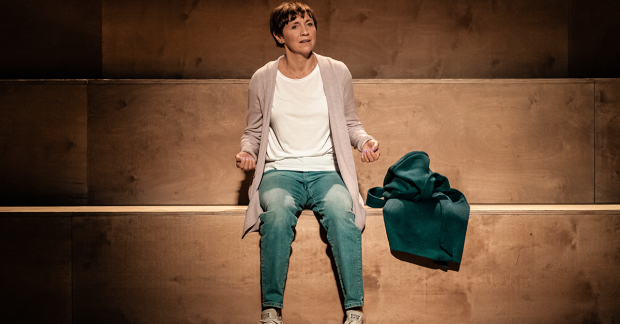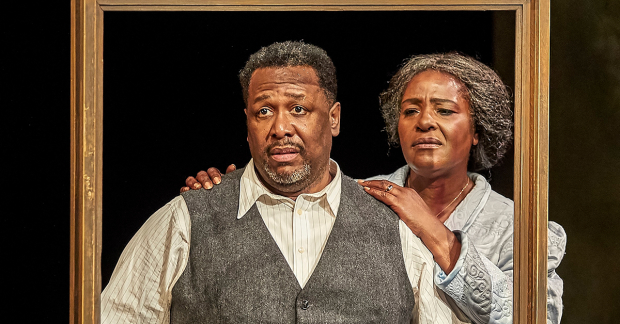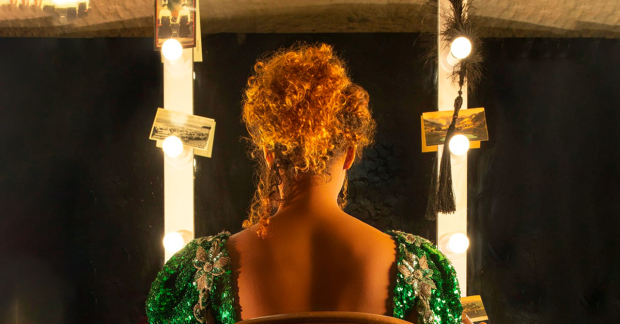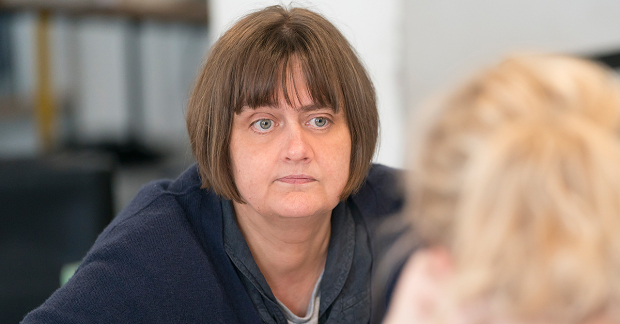Review: Light Falls (Royal Exchange, Manchester)

© Manuel Harlan
Despite moving to London 25 years ago, the plays of Simon Stephens have been recurrently preoccupied with Northern identity. His new play feels perhaps his most personally reflective yet, and marks the end of his long-term collaborator Sarah Frankcom's tenure as the Royal Exchange's artistic director. Her departure lends further significance to a majestically understated meditation on transience and the fulfilment of relationships.
After opening with one of Stephens' characteristic hypernaturalistic monologues, establishing the fragility of everyday life shattered by catastrophe, our attention is then dispersed across four sets of characters. A young woman tentatively tests the romantic potential of the stranger she wakes up beside. A student wrestles with the stresses of fitting in and trusting his boyfriend. A single mother struggles to support herself and her child alone. A married man succumbs to his desire for two younger women.
These narratives of searching for love through loneliness gradually converge on the unifying presence of Rebecca Manley's Christine, slowly revealing their shared connection. This sense of the characters orbiting Manley and each other is illustrated by slick choreography, spiralling and cycling as the clusters of moments form a lifespan. They pass around and over Naomi Dawson's bare-wood set, marking out their own self-definition on the exposing blank space as their voices reverberate and echo out.
The minimalism of the set is mirrored by the subtlety of the performances. Manley overlays maternal affection with a look of anxious bewilderment, portraying a mother whose duty-bound priority of her family becomes dislocated. Witney White plays Jess with transparent honesty, fiercely
defensive when interrogating bedfellow Michael, even if she occasionally sounds robotic delivering lines like "I am very glad we had sex." As married man Bernard, Lloyd Hutchinson is humorously pitiful and helplessly flawed in seeking the gratification his wife neglects.
The North is a broad landscape, though, and one Stephens admits is "an elusive thing to define." His attempt to better understand it through the multiple settings causes the play to overreach itself slightly. We're often not allowed enough time to absorb the emotional consequence before we jump to the next scene. The payoff comes in the touching denouement, however, when the expanse of the family network comes together, culminating in choral unison for Jarvis Cocker's stirring "Hymn of the North" and relieving the pervasively melancholic mood.
Frankcom's gentle, compassionate direction enriches the warm humanity of Stephens' dialogue. She counterposes this against accentuating pauses and silences in the script, leaving the characters to gaze expectantly into each other's eyes as they hope for the companionship with which to repair the fissures between them. When the rain falls, therefore, it's a cathartic outpouring of all their collective torment and anguish.
This is a tender and soulful play about overcoming our self-destructive compulsion to pull each other in and push each other away. The light may have fallen on Frankcom and Stephens' partnership at the Royal Exchange, but the afterglow of their insights into the human spirit is inextinguishable.

















